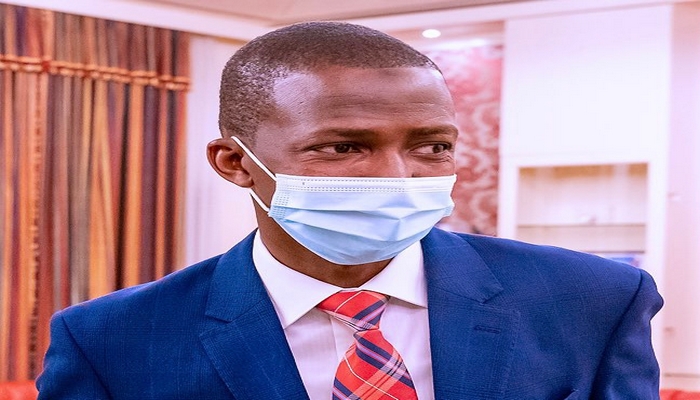
The Chairman of the Economic and Financial Crimes Commission (EFCC) Abdulrasheed Bawa has disclosed that the commission recovered over N72.8 billion, and 30 real estates from corrupt Nigerians since he assumed office six months ago.
According to him, since he took over the chairmanship of the anti-graft agency on March 5, 2021, the commission has recovered over N6 billion, $161 million, £13,000, €1,730, 200 Canadian dollars, CFA 373,000, ¥8,430 and 30 real estates.
Bawa disclosed this on Friday, September 10, at the 38th Cambridge International Symposium on Economic Crime, organised by the Center for International Documentation on Organised and Economic Crime (CIDOEC), Jesus College, University of Cambridge, United Kingdom.
Represented by his Deputy Chief of Staff, Sambo Mayana, the EFCC boss said the agency also arrested over 1500 internet fraudsters in the period under review, many of whom are being prosecuted.
At the level of the EFCC as the central agency coordinating the fight against economic crime in Nigeria, Bawa said the agency has been up front in tackling corruption with tremendous successes, noting that as at August 2021, the EFCC had made over 3408 convictions.
Meanwhile, Bawa said Nigeria lost about N5.4 trillion to tax evasion by multi-national corporations operating in the country from 2011 to 2021, aside from the theft of resources in the nation’s oil and gas sector.
He said the country has so far spent over N6 trillion in the war against terrorism since 2008, noting that all hope was not lost as the country, under the present administration, has demonstrated commitment and political will in dealing with the issue of economic crimes through several legislative and institutional reforms.
Also, Bawa called on world leaders to rise to the challenge of fighting corruption to boost the global economy and security.
According to him, economic and financial crimes including corruption, which manifests in various forms in different nations, are at the foundation of global development and security challenges.
Bawa said resources that could support the development of a country are lost through criminal acts like corruption, tax evasion, money laundering, and others.
The EFCC chair noted that the absence of substantial improvement in the living condition of people in Africa and other developing countries, despite their rich natural resources, can be blamed on pervasive economic crimes.
Citing a report by the Organization for Economic Cooperation and Development OECD, he said, “The “spoiler” effects on countries’ development processes are diverse and particularly severe for fragile states.
“Economic crime, including illicit financial flows, diverts the much-needed resources to rebuild countries’ public services, from security and justice to basic social services such as health and education.
“The incidence of illegal mining, smuggling of goods, tax evasion, illegal oil bunkering, illegal arms deals just to mention but a few does not allow the government to receive the full accruals from the continent’s vast resources that are needed for development.
“The revenue generated are embezzled by government officials and their collaborators in the private sector. This does not allow for economic growth and by extension a hindrance to development.”






